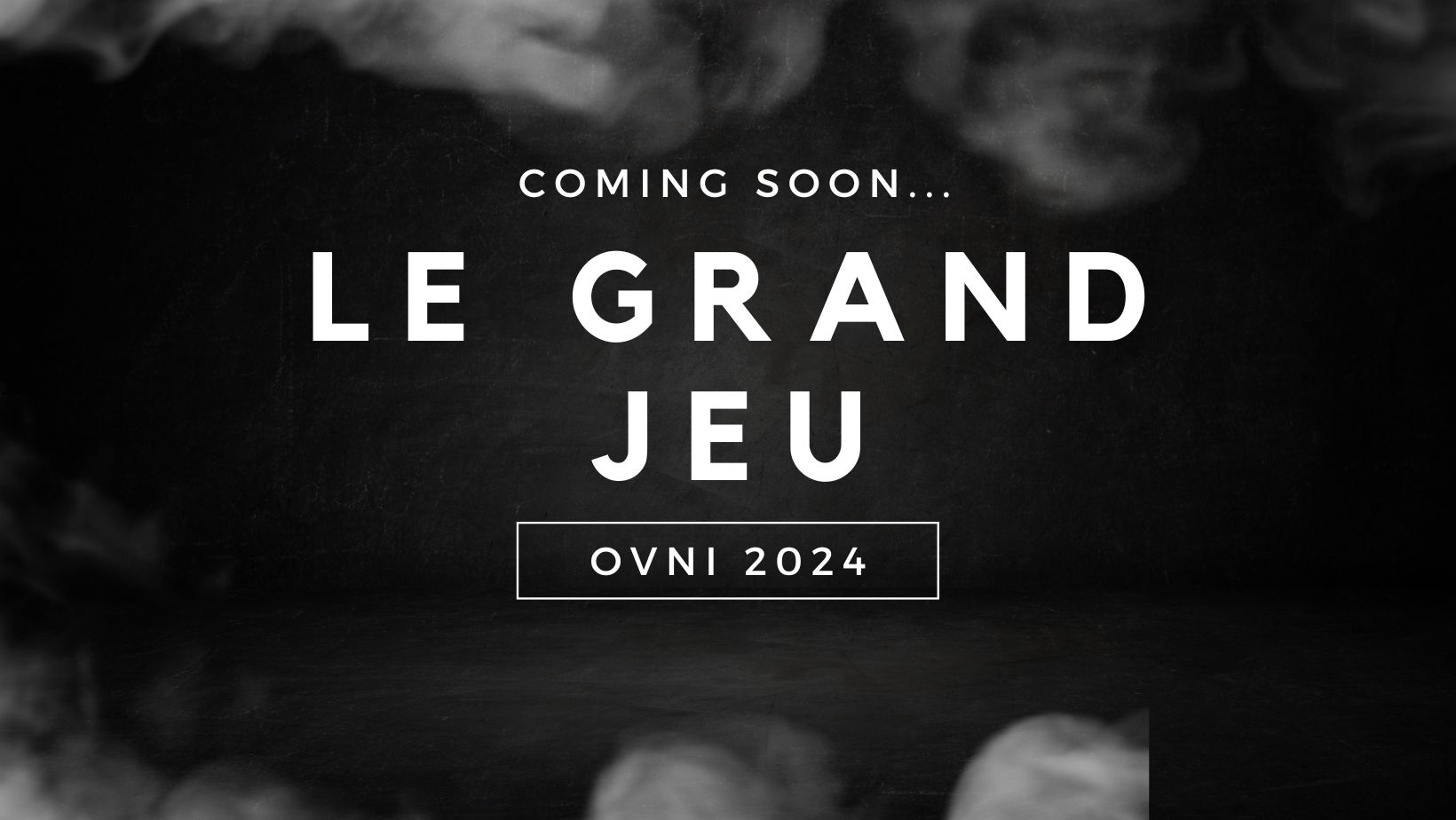
© OVNi
The Great Game Edito
Edition #10
As Mallarmé wrote, « Every thought is a throw of the dice », and the game of chance becomes the game of numbers, OVNi in 2024 celebrates the tenth edition of an Adventure. Since 2015, this successful balancing act has been offering a wide-screen playground of vertigo and mastery. The proposals developed by OVNi and its partners are right from the beginning a pooling of suggestions and creations. They bring life and rhythm to the Festival, providing a highly entertaining score and an interlude in the international festival scene.
Play is a universal phenomenon, a constructed and fundamental experience of social and cultural life. The art of play does not exist without rules, whether tacit or explicit, and it involves complying with or thwarting them. Play, from improvisation to strategy, from wordplay to role-playing, implies a life-saving distancing.
In a playful vein, Le Grand Jeu (The Great Game) is a title* that sounds like a credo, a device reminiscent of the ‘performative’ dimension of video art. This dimension combines endless variations for an experience of diversions and aesthetic ambivalences or didactic throws.
Above all, the way you play is as important as the rules. To play is to invent, it means to join in the dance of creative energy, and sometimes that means taking risks. In games, there is bound to be otherness, even in solo, we invent the other. To play is to re-enact what has been, what is happening to us and what will happen in the future, while our era is creating the idea of lack and falling.
OVNi is a subtle and generous interval from everyday life. Let’s leave some room for playbe ! Surprises may well emerge from the gaps… It’s a proposal for going beyond the limits of the rules and rediscovering the emancipating quality of art.
Nathalie Amae
Notes
___
*The title is an allusion to the avant-garde review Le Grand Jeu, published between 1928 and 1930 by members of the Simpliste group, Roger Gilbert-Lecomte, René Daumal and Roger Vailland, who wanted to « succeed Surrealism », whose representatives had themselves laid down a number of rules of the game.